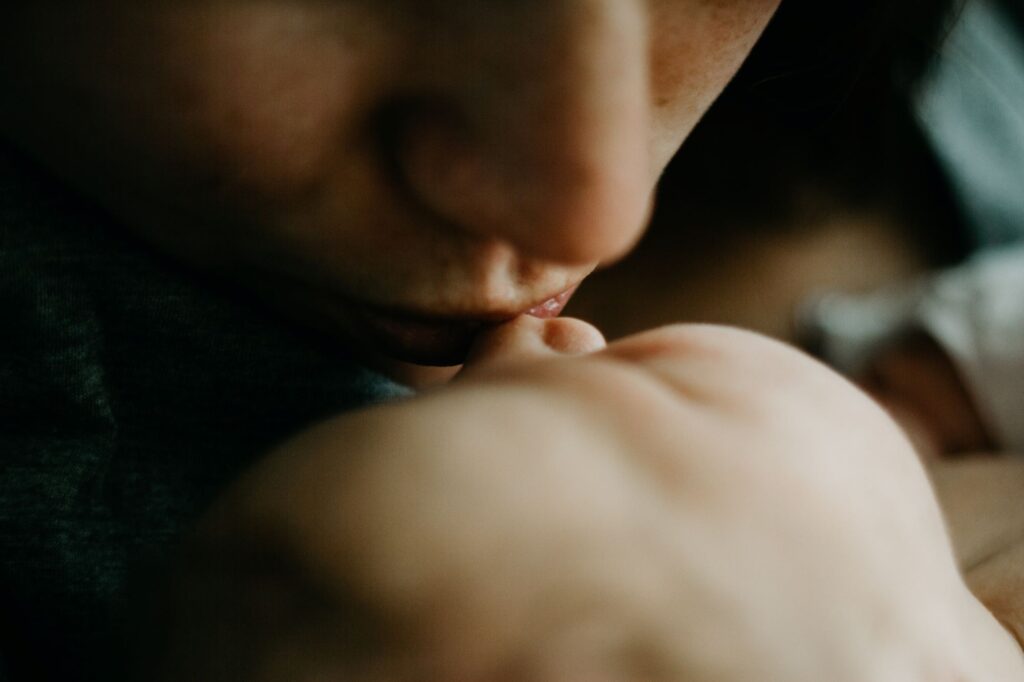Nature Versus Nurture

In this unit (to accompany SAPIENS podcast S6E4), students will learn the origin of the nature versus nurture debate within the field of anthropology and explore where the debate currently stands. Students will examine the ways in which nature and nurture intersect and explore how the lens of nature versus nurture shaped Derek Freeman’s and Margaret Mead’s understanding of the Samoan people.
- Explore the concept of nature versus nurture from an anthropological standpoint and the ways the two intersect.
- Express how Derek Freeman’s and Margaret Mead’s writings on Samoa incorporated the idea of nature versus nurture.

What Our Skeletons Say About the Sex Binary

Genetic Factors May Help Explain Athletic Sudden Death
-
The belief that an individual’s culture influences one’s behavior and emotions.
-
A scientifically inaccurate theory that strives to select and reproduce desirable hereditary characteristics in order to improve future generations.
- During the 19th century, the prevalence of Darwinism and evolutionary theory prompted scholars to distinguish between two causes for animal traits and behavior: natural (biological, hereditary) and environmental (upbringing, culture, surroundings). Sir Francis Galton coined the phrase for this debate as “nature versus nurture.” Lead students in a discussion about this topic.
- The biologist H. M. Parshley, a key player in the debate, argued for the importance of nature and favored biological determination, eugenics, and hereditary traits. Auguste Weismann was another key player, and he promoted the theory that natural selection drove evolution. In contrast, J. B. Watson and Franz Boas believed nurture determined behavior. J. B. Watson popularized the theory of behaviorism in psychology and argued that a child’s environment shapes their behavior. Boas, Mead’s mentor and professor, promoted cultural determinism and is credited with the theory of cultural relativism. He argued that a culture’s practices and traditions must be understood within that culture. Explore the debate with students.
- The theory that nature governs traits and behavior was a well-established dogma and was used to support racist ideologies by classifying humans into hierarchies based on biological differences. Lead a discussion with students on how it was thus difficult initially for Boas and his followers to find support for the alternate theory of cultural determinism.
- Freeman claimed that “The Boasians had an antipathy to biology, and to genetics and evolutionary biology in particular” (The Fateful Hoaxing of Margaret Mead 1998, 295). Explore with students how he used this argument as evidence against Mead’s conclusions about the Samoans.
- Freeman’s second book focuses on providing a detailed ethnography of the Samoans and pointing out Mead’s errors. The book includes a history of how the nature versus nurture debate began, its standing at the time of publication, and an explanation for why Boas pushed against accepting any genetic study for behaviors.
- Mead had her own understanding of nature versus nurture. Regarding adolescence, Mead wrote: “If the same process takes a different form in two different environments, we cannot make any explanations in terms of the process, for that is the same in both cases. But the social environment is very different, and it is to it that we must look for an explanation” (Coming of Age in Samoa 1928, 159).
- Anthropologist Paul Shankman points out the lack of evidence and incorrect conclusions Freeman makes in his argument against Mead. Shankman notes that Freeman overemphasized the popularity of Mead’s Coming of Age in Samoa, disregarded her acknowledgment of biology (and promoting genetics in anthropology in general), and failed to provide transcripts for his hoax-claim interviews. Time and location also played a factor: Mead was in American Samoa in the 1920s, while Freeman was in a different part of the islands in the 1940s and 1950s.
- Today many experts use the words “genetics” and “environment” interchangeably for nature and nurture, respectively. “Environment” encompasses a broader range of interactions that are not solely from parents and caregivers. During the mid-20th century, anthropologists were divided and felt compelled to pick a dominating factor in individual development. Today it is widely accepted that both genetics and environment play a role in human development.
- Epigenetics, the study of how genes are expressed, has added an additional layer of complexity to the nature versus nurture discussion in recent decades. Experts have found that some early childhood environmental factors may dictate what parts of an individual’s genetic code are “turned on.”
-
Barlow, Fiona Kate. 2019. “Nature vs. Nurture Is Nonsense: On the Necessity of an Integrated Genetic, Social, Developmental, and Personality Psychology.” Australian Journal of Psychology 71 (1): 68–79.
-
Levitt, Mairi. 2013. “Perceptions of Nature, Nurture and Behaviour.” Life Sciences, Society and Policy 9 (13).
-
Schneider, Susan M. 2007. “The Tangled Tale of Genes and Environment: Moore’s the Dependent Gene: The Fallacy of ‘Nature vs. Nurture.’” Behavior Analyst 30 (1): 91–105.
-
Shankman, Paul. 2000. “Culture, Biology, and Evolution: The Mead–Freeman Controversy Revisited.” Journal of Youth and Adolescence 29 (5): 539–556.
- How did eugenics spark a response to the cultural determinism movement in anthropology? Who were some of the major players?
- What is the crux of the nature versus nurture argument? Can the two sides work together to explain human behavior?
- In their respective works, did Freeman and Mead acknowledge both nature and nurture in relation to developing human behaviors or do they both strictly adhere to their ideals?
- What is the status of the nature versus nurture controversy in anthropology today?
- How has the argument for nature versus nurture changed over the past 150 years? Where do you see nature versus nurture being debated today?
- Is it enough to cite a single example claiming nature or nurture are responsible for human behavioral development or are multiple instances required to prove a theory? For example, is Mead’s work in American Samoa enough to prove the nurture theory is applicable in all instances of adolescent behavior or should it be viewed alongside examples of adolescents in the United States?
- Select an anthropological study on human behavior. Discuss if the study demonstrates a nature, nurture, or mix of both explanations of human behavior.
- Write an essay exploring Freeman’s claim that Mead omitted biological discussions in her work in American Samoa. Does she purposefully deny nature’s impact on human behavior or simply focus on cultural (nurture) factors?
- List ways the perception of nature versus nurture in anthropology has evolved in recent decades given new discoveries, understanding, and technologies.
-
Article: Evan Nesterak’s “The End of Nature Versus Nurture”
-
Article: Hunter Honeycutt’s “Nature and Nurture as an Enduring Tension in the History of Psychology”
-
Article: Psychology Today’s “Nature vs. Nurture”
-
Book: Carl Degler’s In Search of Human Nature: The Decline and Revival of Darwinism in American Social Thought
-
Book: Derek Freeman’s Margaret Mead and Samoa: The Making and Unmaking of an Anthropological Myth
-
Book: Derek Freeman’s The Fateful Hoaxing of Margaret Mead: A Historical Analysis of Her Samoan Research
-
Book: Margaret Mead’s Coming of Age in Samoa
-
Podcast: Steven Pinker’s “Nature vs. Nurture: What’s More Impactful” in The Life of the Mind
Catherine Torres, Freedom Learning Group
Colonialism and Christianity in the South Pacific


![Uma pessoa usando um vestido branco cuja saia é feita de fitas, cada uma com um nome escrito, inclina-se para trás com os olhos fechados. Ela está na grama, com uma faixa do Black Lives Matter [Vidas Negras Importam] no chão ao seu lado e um círculo de bateristas e espectadores ao redor.](https://www.sapiens.org/app/uploads/2023/07/01_Say-Her-Name-rally-500x337.jpg)